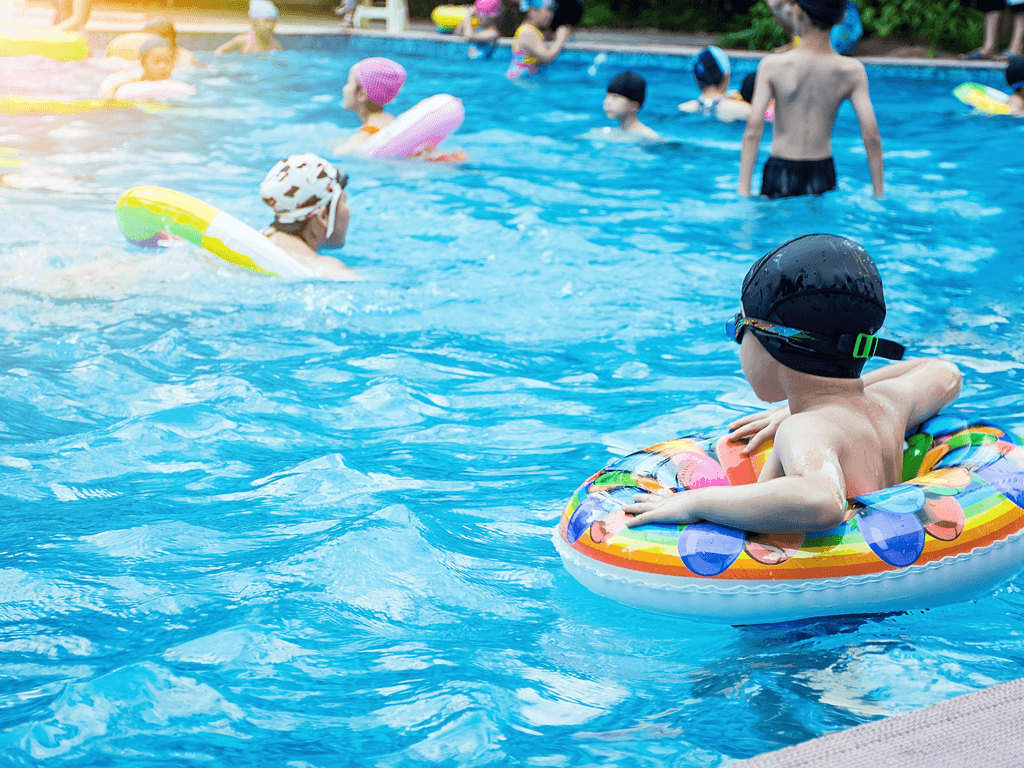The Dangers of Public Pools

Public pools have been around forever, longer than residential swimming pools. Residential swimming pools used to be something only the extraordinarily wealthy could afford but that changed as pools became more affordable to make and install. Yet, despite that, there are still many public pools that get a lot of use. Of course, swimming pools aren’t for everyone, but if you like swimming and have the property to fit one, a swimming pool of your own may be the right choice for you.
As of right now, there are 10.4 million residential swimming pools and 309,000 public pools. The number of people who can afford and want a residential swimming pool of their own is growing, but they’re not all making the switch. If you love to swim, but haven’t gotten that swimming pool you’ve been thinking about, maybe you should consider the dangers of using a public pool instead.
What’s in a Public Pool?
By definition of being a public pool, anyone from around the neighborhood can use it. That means they can bring germs and diseases from their homes, workplaces, and anywhere else they’ve been. In the world we live in now, cleanliness is of the utmost importance for safety. We all need to be safe when considering what water we and our families are jumping into.
This isn’t to say that public pools don’t do their best to keep the water clean, but you can only do so much with chlorine pools. Your residential swimming pool can be filled with saltwater or mineral water if you want to go the extra mile. Most public pools don’t do that. That leaves them vulnerable to these diseases that are commonly cultivated in pool water. The water may be clear, but that doesn’t mean it’s clean.
Parasites
Many nasty parasites cultivate in water and can get in a public swimming pool. Back in 2019, when public pools were at their highest use, there were several outbreaks of harmful bacteria, viruses, and parasites. This included:
- Cryptosporidium: This is a parasitic protozoan that can cause diarrhea for up to three weeks. It’s a fast-spreading germ that caused more public pool outbreaks than any of the other diseases in 2019.
- Pseudomonas: This is a bacteria that thrives in water and isn’t killed by chlorine. This causes hot tub rash and swimmer’s ear, which are two symptoms that can keep someone from being able to swim for weeks.
- Legionella: This causes legionnaires’ disease and Pontiac fever, which leads to the infected experiencing flu-like symptoms.
A residential swimming pool is cornered off from the rest of the neighborhood, so you don’t have to worry about other people bringing in these germs. If you’re worried that you or your family may bring in these germs, you can get a pool that has saltwater or mineral water. These types of chlorination systems go beyond just chlorine and clean your pool much better than a pure chlorine system.
Public Bathrooms
Swimming pools have the problem of being used as bathrooms. In 2017, researchers from the University of Alberta tested 31 swimming pools and hot tubs. They found that there was acesulfame in each one, which comes from urine mixing with chlorine. There are more studies that come to the same conclusion.
Public pools are worse than residential pools, with people coming in from all over and using the public pools as their bathrooms. There’s no sense of responsibility either, as visitors don’t have to take care of public pools. If someone is ruining their own property, they’ll do worse to a public utility.
This isn’t just gross, however, but dangerous as well. When urine and chlorine mix, they create toxic compounds that can make people sick. You can easily find yourself with rashes from being in it, or with flu-like symptoms if you’re unlucky enough to consume it. Yuck.
For context, when urine and chlorine mix, they create toxic compounds called disinfection byproducts. This includes chloramines that cause an odor. That means you can at least be tipped off when someone has done something wrong in the pool. Sometimes, in the worst instances, you can get cyanogen chloride, which is classified as a chemical warfare agent. So ask yourself, while you may be able to trust yourself and your own family, can you trust strangers?
Swim Safely at Home
A public pool is perfect for people who can’t swim at home. But if you’ve just been waiting or are indecisive, make the jump not only for privacy but for health. Public pools are only as safe as the many different people who use them. Keep yourself and your family safe as can be as you enjoy the summer sun, and swim! For help finding the right pool for you, contact Aqua Leisure Pools & Spas. We’re happy to help!
Posted by Aqua Leisure Pools & Spas in Pools

